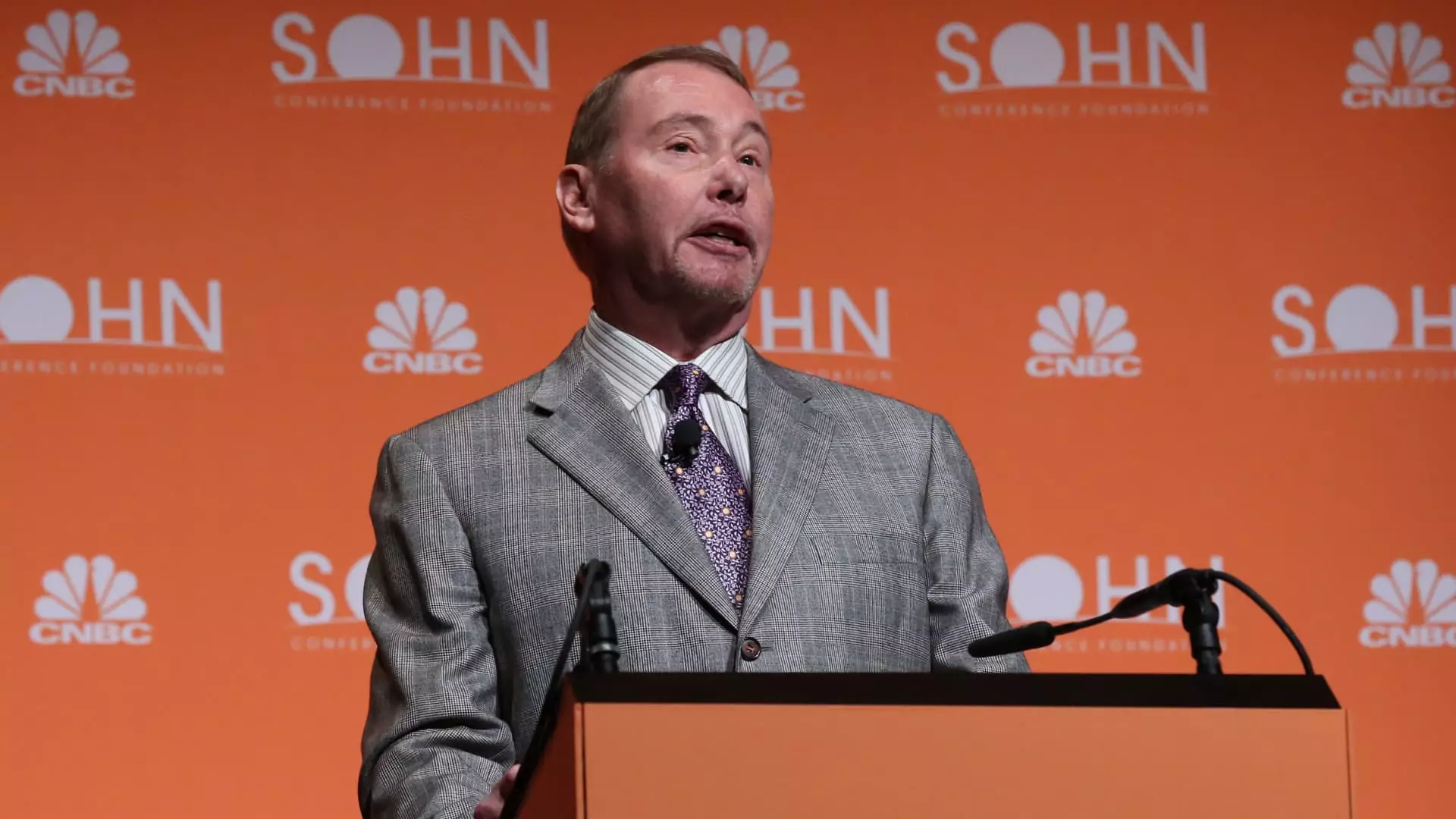The dynamics of U.S. economic policy are intriguingly intertwined with political shifts, especially when it comes to controlling key fiscal levers. As highlighted by Jeffrey Gundlach, CEO of DoubleLine Capital, the looming possibility of Republican control over the House could fundamentally alter the nation’s financial trajectory. With Gundlach managing assets exceeding $96 billion, his perspectives are particularly valuable, as they underscore the potential repercussions of government decisions on interest rates and bond yields.
The intersection of politics and finance becomes clearer as one looks at the implications of increased government spending. Gundlach suggests that if Republicans secure a governing trifecta under the leadership of President-elect Donald Trump, we could anticipate a notable rise in borrowing through Treasury issuance. This would likely exert upward pressure on bond yields, creating a ripple effect across various financial markets. Such forecasts necessitate a closer look at what a GOP-led government might mean for fiscal policies and how they could influence the broader economy.
The notion that a Republican-controlled House would propel higher government spending is crucial to understanding the potential impact on interest rates. As Gundlach explains, an influx of debt seems almost inevitable, particularly if the Trump administration pursues an aggressive agenda centered around tax cuts and fiscal stimulus. The recent statistics depict a troubling fiscal narrative: the government’s budget deficit for fiscal 2024 exceeds $1.8 trillion, with financing costs on existing debt reaching alarming levels. This situation raises valid concerns about the sustainability of such fiscal policies.
Moreover, if the Trump administration were to extend tax cuts from 2017 or introduce new ones, the implications for national debt could be severe. Higher debt levels translate not just to immediate fiscal strain but also to long-term economic health risks, particularly if slumping revenues necessitate further borrowing. Investors need to brace themselves for the potential fallout, particularly in bond markets where yields could rise sharply.
An additional layer to this complex scenario involves the Federal Reserve’s role in responding to rising interest rates. The Fed recently enacted rate cuts, but if the political landscape shifts as Gundlach predicts, its ability to intervene might become increasingly tenuous. Gundlach aptly points out that how the Fed reacts in this environment would be a watchword for investors, as any divergence from expected patterns could disrupt market stability.
Furthermore, Gundlach’s assertion that a Trump administration may reduce the odds of a recession despite higher interest rates is a compelling, albeit cautious, perspective. His take serves as a reminder that policy outcomes are not only driven by fiscal measures but also by how they are perceived and implemented, ultimately shaping the economic outlook. The combination of fiscal stimulus and low unemployment could indeed cushion against an economic downturn, at least in the short term.
The potential for Republican control of the House presents a dual-edged sword in terms of fiscal policy and interest rates. While the promise of increased spending may lead to elevated interest rates, it also creates an optimistic backdrop that could stave off recessionary fears. As investors navigate this unpredictable environment, vigilance and adaptability will be crucial in anticipating how these developments influence the broader economic context in which they operate. Understanding the implications of political shifts on fiscal health remains vital for anyone looking to invest strategically in turbulent times.

